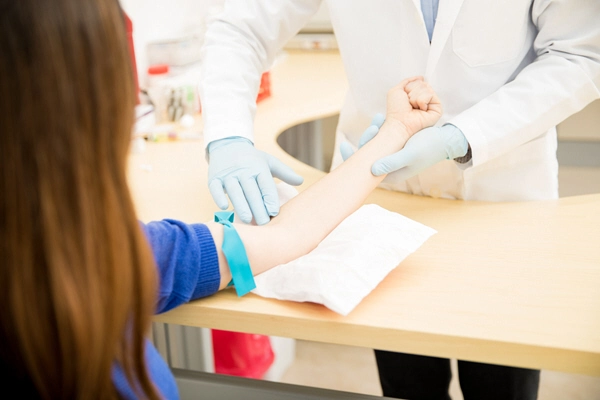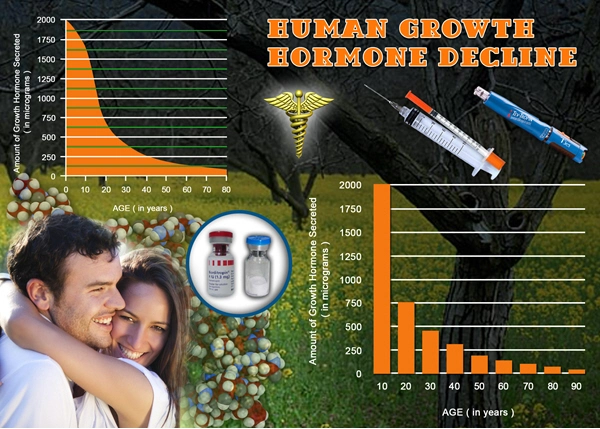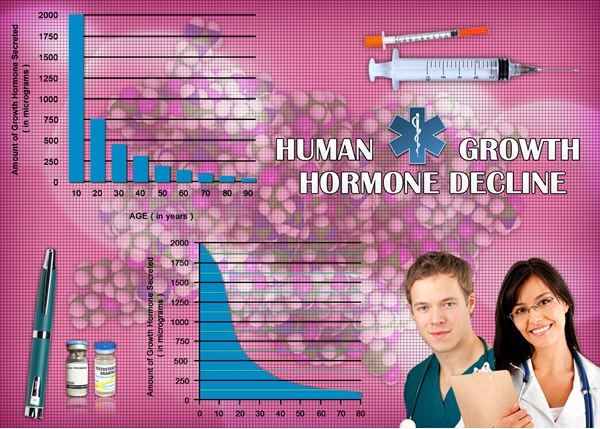Introduction
Secondary hypogonadism, a condition where the body does not produce enough testosterone due to a dysfunction in the pituitary gland or hypothalamus, can significantly impact the emotional well-being of American males. This article delves into the psychological effects of this condition and explores the coping mechanisms employed by affected individuals. By understanding these aspects, we can better support men in managing the emotional challenges associated with secondary hypogonadism.
The Psychological Impact of Secondary Hypogonadism
Secondary hypogonadism can lead to a myriad of psychological symptoms, including depression, anxiety, and reduced self-esteem. The decrease in testosterone levels can cause mood swings and emotional instability, which can be particularly challenging for American males who often face societal pressures to maintain a stoic demeanor. The emotional toll of this condition can manifest in feelings of isolation and a diminished sense of masculinity, further exacerbating mental health issues.
Men with secondary hypogonadism often report a loss of motivation and a decline in cognitive function, which can impact their professional and personal lives. The psychological impact of these symptoms can lead to a vicious cycle of stress and worsening mental health, making it crucial for healthcare providers to address both the physical and emotional aspects of the condition.
Coping Mechanisms and Emotional Well-being
To combat the psychological effects of secondary hypogonadism, American males have developed various coping mechanisms. One common strategy is seeking support from family and friends, which can provide a sense of belonging and understanding. Support groups, both in-person and online, offer a platform for men to share their experiences and learn from others facing similar challenges.
Engaging in physical activity is another effective coping mechanism. Regular exercise can help boost testosterone levels naturally and improve mood and overall mental health. Activities such as weightlifting, running, and yoga can be particularly beneficial for men with secondary hypogonadism, as they promote physical strength and emotional resilience.
Therapy and counseling are also valuable tools for managing the emotional impact of secondary hypogonadism. Cognitive-behavioral therapy (CBT) can help men reframe negative thoughts and develop healthier coping strategies. Additionally, hormone replacement therapy (HRT) may be recommended to address the underlying hormonal imbalance, which can, in turn, alleviate some of the psychological symptoms.
Navigating Societal Expectations and Stigma
American males with secondary hypogonadism often face societal stigma and pressure to conform to traditional masculine ideals. The fear of being perceived as weak or less masculine can deter men from seeking help and discussing their emotional struggles. It is essential for healthcare providers and support networks to create a safe and non-judgmental space for men to express their feelings and seek assistance.
Education and awareness campaigns can play a crucial role in destigmatizing secondary hypogonadism and promoting a more inclusive understanding of masculinity. By challenging stereotypes and fostering open conversations about mental health, we can empower American males to prioritize their emotional well-being without fear of judgment.
Conclusion
Secondary hypogonadism can have a profound psychological impact on American males, affecting their emotional well-being and overall quality of life. By understanding the psychological effects of this condition and implementing effective coping mechanisms, men can navigate the challenges associated with secondary hypogonadism. It is crucial for healthcare providers, support networks, and society as a whole to support men in managing their emotional health and challenging the stigma surrounding this condition. Through education, empathy, and open dialogue, we can create a more supportive environment for American males living with secondary hypogonadism.

- Secondary Hypogonadism's Impact on Cardiovascular Health in American Men [Last Updated On: March 14th, 2025] [Originally Added On: March 14th, 2025]
- Stress and Secondary Hypogonadism: Impacts and Management Strategies for American Men [Last Updated On: March 17th, 2025] [Originally Added On: March 17th, 2025]
- Genetic Factors in Secondary Hypogonadism: KAL1, FGFR1, GNRHR Mutations and Treatment Implications [Last Updated On: March 17th, 2025] [Originally Added On: March 17th, 2025]
- Secondary Hypogonadism's Impact on Cognitive Function in American Men [Last Updated On: March 18th, 2025] [Originally Added On: March 18th, 2025]
- Secondary Hypogonadism in American Men: Building Essential Support Systems [Last Updated On: March 18th, 2025] [Originally Added On: March 18th, 2025]
- Secondary Hypogonadism's Psychological Impact on American Men: A Holistic Treatment Approach [Last Updated On: March 20th, 2025] [Originally Added On: March 20th, 2025]
- Secondary Hypogonadism in American Men: Causes, Diagnosis, and Management Strategies [Last Updated On: March 20th, 2025] [Originally Added On: March 20th, 2025]
- Secondary Hypogonadism: Impact on Energy and Treatment Strategies in American Males [Last Updated On: March 20th, 2025] [Originally Added On: March 20th, 2025]
- Exercise Strategies for Managing Secondary Hypogonadism in American Males [Last Updated On: March 21st, 2025] [Originally Added On: March 21st, 2025]
- Secondary Hypogonadism's Impact on Skin Health in American Men: Causes and Management [Last Updated On: March 21st, 2025] [Originally Added On: March 21st, 2025]
- Secondary Hypogonadism in American Males: Understanding and Managing Hair Loss [Last Updated On: March 21st, 2025] [Originally Added On: March 21st, 2025]
- Secondary Hypogonadism and Sleep: Impacts and Improvement Strategies for American Men [Last Updated On: March 21st, 2025] [Originally Added On: March 21st, 2025]
- Secondary Hypogonadism: Symptoms, Causes, and Treatment in American Males [Last Updated On: March 22nd, 2025] [Originally Added On: March 22nd, 2025]
- Secondary Hypogonadism: Impacts on Body Composition in American Men [Last Updated On: March 22nd, 2025] [Originally Added On: March 22nd, 2025]
- Secondary Hypogonadism's Impact on Immune System in American Men: A Comprehensive Overview [Last Updated On: March 22nd, 2025] [Originally Added On: March 22nd, 2025]
- Exploring Alternative Therapies for Secondary Hypogonadism in American Men [Last Updated On: March 22nd, 2025] [Originally Added On: March 22nd, 2025]
- Secondary Hypogonadism: Causes, Symptoms, and Treatment for American Males [Last Updated On: March 22nd, 2025] [Originally Added On: March 22nd, 2025]
- Secondary Hypogonadism: Causes, Symptoms, and Treatment for American Men [Last Updated On: March 22nd, 2025] [Originally Added On: March 22nd, 2025]
- Secondary Hypogonadism: Impacts on Prostate Health and Testosterone Therapy Considerations [Last Updated On: March 23rd, 2025] [Originally Added On: March 23rd, 2025]
- Secondary Hypogonadism in American Males: Links to Anemia and Treatment Strategies [Last Updated On: March 23rd, 2025] [Originally Added On: March 23rd, 2025]
- Secondary Hypogonadism: Long-Term Effects and Management in American Men [Last Updated On: March 23rd, 2025] [Originally Added On: March 23rd, 2025]
- Secondary Hypogonadism: Understanding Its Impact on Male Libido and Treatment Options [Last Updated On: March 24th, 2025] [Originally Added On: March 24th, 2025]
- Secondary Hypogonadism and Autoimmune Diseases: Implications for American Men's Health [Last Updated On: March 24th, 2025] [Originally Added On: March 24th, 2025]
- Secondary Hypogonadism's Impact on Mood Disorders in American Men: Mechanisms and Therapies [Last Updated On: March 24th, 2025] [Originally Added On: March 24th, 2025]
- Secondary Hypogonadism: Causes, Diagnosis, and Multifaceted Treatment Approaches [Last Updated On: March 24th, 2025] [Originally Added On: March 24th, 2025]
- Secondary Hypogonadism: Impacts on American Men's Social Life and Well-being [Last Updated On: March 24th, 2025] [Originally Added On: March 24th, 2025]
- Secondary Hypogonadism's Impact on Bone Density in American Men: Risks and Management [Last Updated On: March 24th, 2025] [Originally Added On: March 24th, 2025]
- Secondary Hypogonadism and Diabetes: Risks and Management for American Males [Last Updated On: March 25th, 2025] [Originally Added On: March 25th, 2025]
- Secondary Hypogonadism: Integrating Medical and Psychological Care for American Males [Last Updated On: March 25th, 2025] [Originally Added On: March 25th, 2025]
- Exercise Boosts Testosterone: Managing Secondary Hypogonadism in American Men [Last Updated On: March 25th, 2025] [Originally Added On: March 25th, 2025]
- Sleep Disorders Linked to Secondary Hypogonadism in American Men: Mechanisms and Implications [Last Updated On: March 25th, 2025] [Originally Added On: March 25th, 2025]
- Understanding Secondary Hypogonadism: Symptoms, Diagnosis, and Management in American Males [Last Updated On: March 25th, 2025] [Originally Added On: March 25th, 2025]
- Environmental Factors and Secondary Hypogonadism in American Men: Causes and Prevention [Last Updated On: March 25th, 2025] [Originally Added On: March 25th, 2025]
- Secondary Hypogonadism: Impact on Fat Distribution and Health in American Men [Last Updated On: March 26th, 2025] [Originally Added On: March 26th, 2025]
- Secondary Hypogonadism's Impact on Kidney Function in American Males: Diagnosis and Management [Last Updated On: March 26th, 2025] [Originally Added On: March 26th, 2025]
- Managing Secondary Hypogonadism and Fatigue in American Males: Diagnosis, Treatment, and Support [Last Updated On: March 26th, 2025] [Originally Added On: March 26th, 2025]
- Lifestyle Factors and Management of Secondary Hypogonadism in American Males [Last Updated On: March 26th, 2025] [Originally Added On: March 26th, 2025]
- Thyroid Function's Role in Secondary Hypogonadism Among American Males [Last Updated On: March 26th, 2025] [Originally Added On: March 26th, 2025]
- Understanding Secondary Hypogonadism: Causes, Symptoms, and Treatment Options for American Males [Last Updated On: March 26th, 2025] [Originally Added On: March 26th, 2025]
- Secondary Hypogonadism: Impacts and Management Strategies for American Men [Last Updated On: March 26th, 2025] [Originally Added On: March 26th, 2025]
- Secondary Hypogonadism's Impact on Muscle Strength in American Men: Diagnosis and Treatment [Last Updated On: March 26th, 2025] [Originally Added On: March 26th, 2025]
- Secondary Hypogonadism: Causes, Symptoms, and Treatment Options for American Males [Last Updated On: March 26th, 2025] [Originally Added On: March 26th, 2025]
- Secondary Hypogonadism's Impact on American Men's Physical Performance and Health [Last Updated On: March 26th, 2025] [Originally Added On: March 26th, 2025]
- Secondary Hypogonadism's Emotional Impact and Holistic Management in American Men [Last Updated On: March 27th, 2025] [Originally Added On: March 27th, 2025]
- Secondary Hypogonadism and Heart Disease: Risks, Symptoms, and Management for American Males [Last Updated On: March 27th, 2025] [Originally Added On: March 27th, 2025]
- Secondary Hypogonadism and Liver Health: Risks and Management for American Males [Last Updated On: March 27th, 2025] [Originally Added On: March 27th, 2025]
- Secondary Hypogonadism in American Males: Causes, Diagnosis, and Management Strategies [Last Updated On: March 27th, 2025] [Originally Added On: March 27th, 2025]
- Nutrition's Role in Managing Secondary Hypogonadism in American Males [Last Updated On: March 27th, 2025] [Originally Added On: March 27th, 2025]
- Managing Secondary Hypogonadism in American Males: Stress, Strategies, and Support [Last Updated On: March 29th, 2025] [Originally Added On: March 29th, 2025]
- Secondary Hypogonadism's Psychological Impact on Men: A Comprehensive Care Approach [Last Updated On: March 29th, 2025] [Originally Added On: March 29th, 2025]
- Secondary Hypogonadism's Impact on Cognitive Function in American Men: A Comprehensive Review [Last Updated On: March 29th, 2025] [Originally Added On: March 29th, 2025]
- Secondary Hypogonadism's Impact on Mood in American Men: Mechanisms and Interventions [Last Updated On: March 30th, 2025] [Originally Added On: March 30th, 2025]
- Secondary Hypogonadism: Causes, Symptoms, and Hormonal Therapy Management [Last Updated On: March 30th, 2025] [Originally Added On: March 30th, 2025]
- Secondary Hypogonadism: Impact on Energy and Vitality in American Men [Last Updated On: April 1st, 2025] [Originally Added On: April 1st, 2025]
- Managing Secondary Hypogonadism: The Crucial Role of Diet and Nutrition in American Men [Last Updated On: April 4th, 2025] [Originally Added On: April 4th, 2025]
- Secondary Hypogonadism in American Males: Impact on Weight and Management Strategies [Last Updated On: April 5th, 2025] [Originally Added On: April 5th, 2025]
- Sleep's Critical Role in Managing Secondary Hypogonadism in American Males [Last Updated On: April 6th, 2025] [Originally Added On: April 6th, 2025]
- Managing Secondary Hypogonadism: Symptoms, Causes, and Treatment for American Males [Last Updated On: April 7th, 2025] [Originally Added On: April 7th, 2025]
- Managing Secondary Hypogonadism: Holistic Approaches and Increased Awareness in American Males [Last Updated On: April 8th, 2025] [Originally Added On: April 8th, 2025]
- Secondary Hypogonadism's Impact on Emotional Resilience in American Men [Last Updated On: April 8th, 2025] [Originally Added On: April 8th, 2025]
- Secondary Hypogonadism: Impact on American Men's Relationships and Coping Strategies [Last Updated On: April 9th, 2025] [Originally Added On: April 9th, 2025]
- Secondary Hypogonadism's Impact on Mental Clarity in American Men: Insights and Treatment [Last Updated On: April 10th, 2025] [Originally Added On: April 10th, 2025]
- Managing Secondary Hypogonadism in American Men: Diagnosis, Treatment, and Lifestyle Strategies [Last Updated On: April 10th, 2025] [Originally Added On: April 10th, 2025]
- Understanding Secondary Hypogonadism: Symptoms, Causes, and Management in American Males [Last Updated On: April 11th, 2025] [Originally Added On: April 11th, 2025]
- Community Support Enhances Life Quality for Men with Secondary Hypogonadism [Last Updated On: April 11th, 2025] [Originally Added On: April 11th, 2025]
- Secondary Hypogonadism: Impacts on Daily Life and Treatment Options for American Men [Last Updated On: April 13th, 2025] [Originally Added On: April 13th, 2025]
- Secondary Hypogonadism in American Males: Impacts on Mental Health and Comprehensive Management [Last Updated On: April 13th, 2025] [Originally Added On: April 13th, 2025]
- Managing Secondary Hypogonadism in American Males: Personalized Approaches and Holistic Care [Last Updated On: April 14th, 2025] [Originally Added On: April 14th, 2025]
- Secondary Hypogonadism: Impacts on Muscle, Bone, Fat, Heart, and Sexual Health in Men [Last Updated On: April 15th, 2025] [Originally Added On: April 15th, 2025]
- Understanding Secondary Hypogonadism: Impacts and Management Strategies for Men's Vitality [Last Updated On: April 15th, 2025] [Originally Added On: April 15th, 2025]
- Secondary Hypogonadism in American Males: Causes, Diagnosis, and Management Strategies [Last Updated On: April 15th, 2025] [Originally Added On: April 15th, 2025]
- Understanding Secondary Hypogonadism: Causes, Symptoms, and Treatment for American Males [Last Updated On: April 15th, 2025] [Originally Added On: April 15th, 2025]
- Understanding Secondary Hypogonadism: Symptoms, Diagnosis, and Management in American Males [Last Updated On: April 16th, 2025] [Originally Added On: April 16th, 2025]
- Secondary Hypogonadism: Understanding Its Emotional Impact on American Men [Last Updated On: April 16th, 2025] [Originally Added On: April 16th, 2025]
- Nutrition's Role in Managing Secondary Hypogonadism: Key Nutrients and Dietary Strategies [Last Updated On: April 17th, 2025] [Originally Added On: April 17th, 2025]
- Secondary Hypogonadism: Symptoms, Diagnosis, and Holistic Management for American Males [Last Updated On: April 19th, 2025] [Originally Added On: April 19th, 2025]
- Secondary Hypogonadism in American Males: Lifestyle Factors and Management Strategies [Last Updated On: April 20th, 2025] [Originally Added On: April 20th, 2025]
- Secondary Hypogonadism: Impact on Self-Esteem and Holistic Management Strategies [Last Updated On: April 20th, 2025] [Originally Added On: April 20th, 2025]
- Lifestyle Factors Impacting Secondary Hypogonadism in American Males: A Multicenter Study [Last Updated On: April 22nd, 2025] [Originally Added On: April 22nd, 2025]
- Genetic and Environmental Factors in Secondary Hypogonadism Among American Males [Last Updated On: April 23rd, 2025] [Originally Added On: April 23rd, 2025]



List of USA state clinics - click a flag below for blood testing clinics.
Word Count: 569



















































